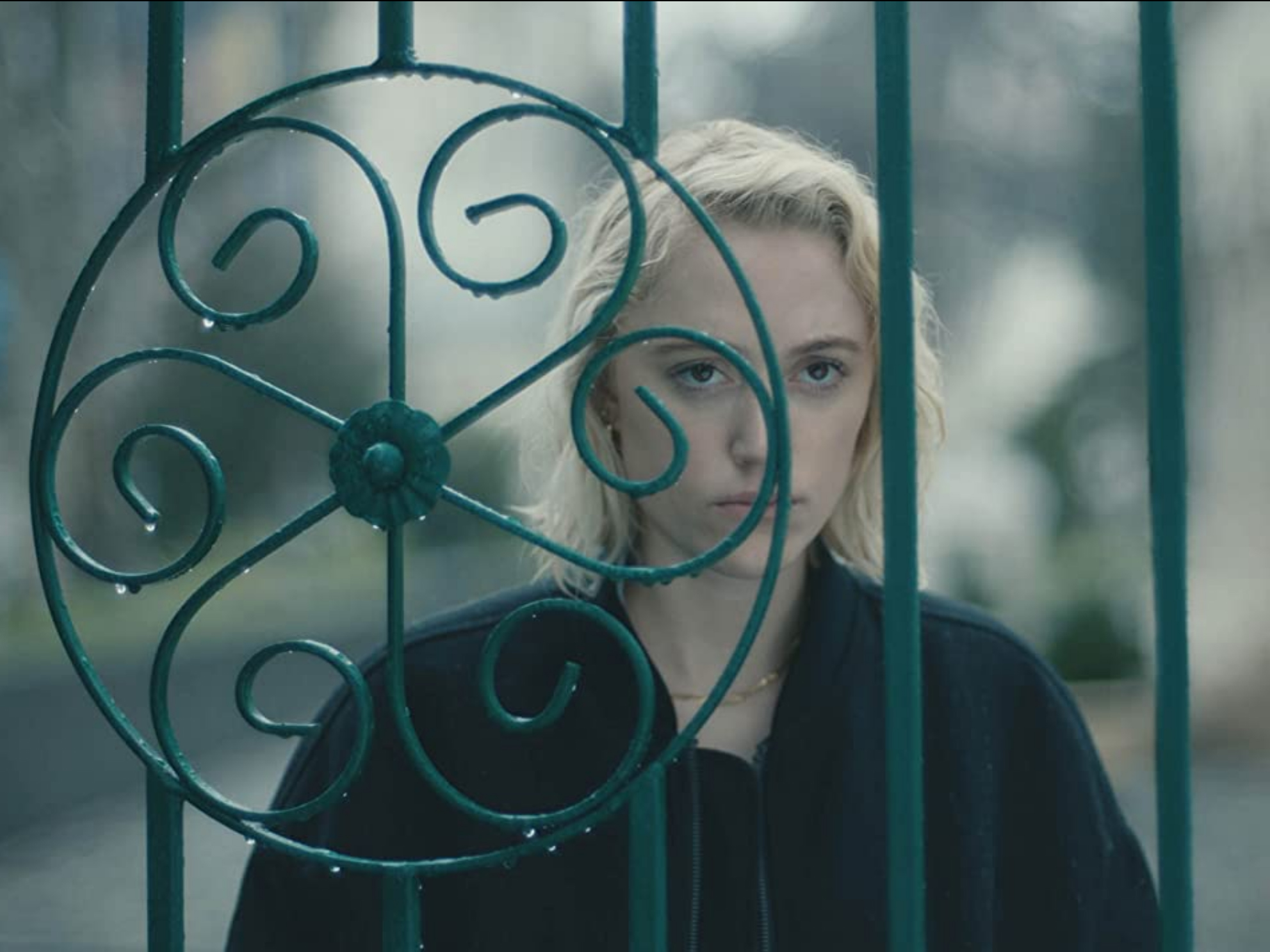
- Festivals
“Watcher”: Who is Watching Whom?
Watcher is an official selection of the U.S. Dramatic Competition at the 2022 Sundance Film Festival. It is the first feature director Chloe Okuno’s and is a tense, modern, Hitchcockian psychological thriller.
The premise is simple: Julia, played by Maika Monroe, is an American who has moved to Bucharest with her boyfriend, Francis, who is half-Romanian and is starting a new job here.
Francis, played by Karl Glusman, is busy working all day long and Julia is alone with nothing to do in a city where she does not comprehend the language and does not know a soul.
When she sees a shadowy figure appearing in a window in a rundown building across the street from their luxurious apartment more than once, her assumption is that some man is watching her. When she meets him in a local supermarket, she feels sure he is following her and becomes increasingly paranoid about his intentions.
For Chloe Okunu, the challenge was to show the audience what this horrifying, isolated and claustrophobic experience was like from Julia’s point of view.
“I still feel like the sort of true psychological thriller where we’re 100% in the head of our protagonist is just a very interesting genre for a filmmaker,” she said at a Q&A at Sundance.
“How do I show visually what Julia is feeling? How do we tell that story in a way where the emotions are told through the filmmaking and you’re bringing people into her interior life?”
Being isolated all day with nothing to do, drives Julie to become obsessed with the figure in the window and his presence in her life. However, when she tells her husband and a policeman about her fears, they downplay it.
When she takes her husband to the supermarket to show him footage of the man following her and watching her in the store, his reaction is to doubt her. He trivializes her experience by suggesting that “he is staring at the woman who is staring at him” – making her the watcher.
“I just felt like there were things about that kind of story and being a woman and feeling like you’re not believed and feeling like you’re constantly doubted and maybe slightly patronized by the men around you, that I felt was a thing that a lot of women have experienced, certainly I’ve experienced at times in my life. I just felt like it was something that I could speak to.”
The fact that a sadistic murderer called The Spider has been slashing women’s throats and decapitating women in the neighborhood does not seem to worry the men around Julia, so she starts doing some investigation of her own by following the mystery man in the window.
When this leads to him showing up at her door with a policeman accusing her of being the one doing the watching and following, the chilling first-time experience of seeing his face (Burn Gorman) without him making eye contact just makes Julie even more petrified.
She is convinced he is dangerous. But without any proof of his intentions, she has no choice but goes on living her lonely existence with the man continuing to watch her from the window across from her.
“I think obviously, just Hitchcock and Rear Window is built into the DNA of this movie. There are very obvious comparisons to Rear Window. Honestly, if there was any one particular, big reason I was reluctant to do the movie, it’s because I knew those comparisons are there naturally.
“And you never want to set yourself up to be compared to Hitchcock because that’s just like a losing scenario. But I felt like ultimately, the character of Julia and her journey sort of is unique. And I put a lot of myself in it. I know Maika put a lot of herself in it,” she said.
The movie was originally meant to take place in New York, but when shooting in Romania became an option, Okuno rewrote the script to set it in Bucharest. Making use of the gloomy architecture of the communist era and the isolation Julia experiences as an ex-pat made the setting even scarier.
“It ended up being such a creative blessing actually because it unlocked all these things. And I’d lived abroad, and I’d felt what that was like. And I knew it was isolating. And Maika had the same experience as well, I think. So, it was something we connected on immediately.”

